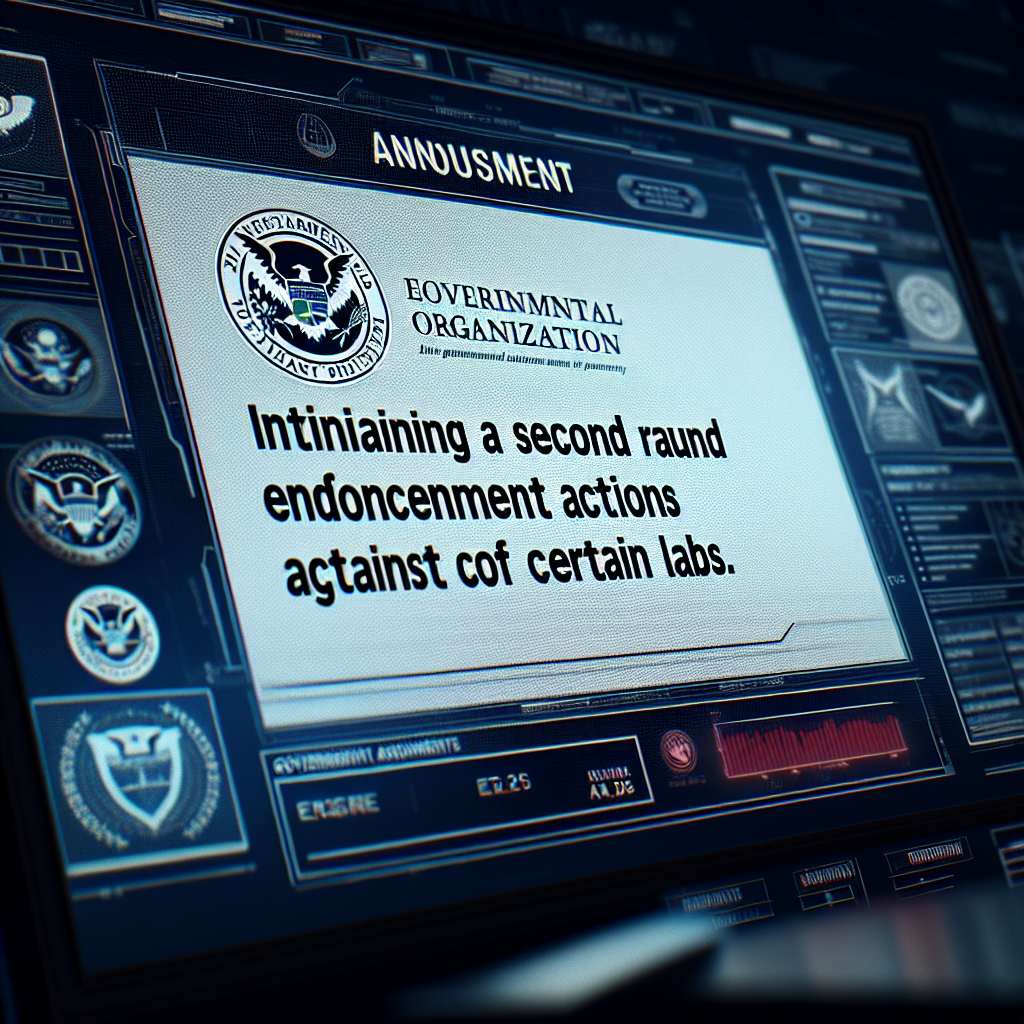The Federal Communications Commission (FCC) of the United States announced on Friday, September 26th, that it has initiated a second round of enforcement actions against “bad labs” controlled by the Chinese Communist Party. The FCC rejected certification applications from four labs controlled by the Chinese government, meaning that these labs are not allowed to provide testing services for electronic products imported to the US.
In its statement, the FCC emphasized that these labs are responsible for “reviewing and approving electronic products used in the United States,” but ultimately are “owned or controlled by foreign hostile forces.”
During the second round of enforcement actions that took place on Thursday, September 25th, the FCC’s Office of Engineering and Technology (OET) sent letters rejecting the certification applications from four labs controlled by the Chinese government. Earlier this month, the FCC had taken action against 11 other “bad labs.” To date, the FCC has initiated proceedings to revoke or reject certification or certification applications from 15 “bad labs” controlled by the Chinese Communist Party.
FCC Chairman Brendan Carr stated, “President Trump is leading the charge to bring back America’s industrial capacity and protect critical supply chains from threats posed by foreign hostile nations. The action taken by the FCC today against ‘bad labs’ will continue to advance this goal.”
Carr also mentioned that labs controlled by foreign hostile governments should not have possession or control over labs that test the safety of products imported to the US. He added that these enforcement actions are an important step in rebuilding public trust in the FCC’s equipment certification process and addressing foreign hostile threats.
According to the FCC’s statement, private testing labs and certification bodies are responsible for overseeing all testing and certification work for equipment approved for import or sale in the US to ensure that these products comply with FCC regulatory requirements, free from any equipment that poses a threat to national security.
In the second round of actions, the OET rejected the initial certification application from CCIC-CSA International Certification Co. (CCIC-CSA International Certification), and also refused certification renewal applications from three labs, including the Industrial Internet Innovation Center in Shanghai, the State Radio Monitoring Center, and the Reliability Laboratory – New H3C Technologies Co. Ltd.
In May of this year, the FCC unanimously passed new regulations prohibiting “bad labs” from testing electronic equipment to address the threats posed by labs controlled by foreign competitors such as the Chinese government.
“FCC reviewed labs that were already certified and found that some labs may have close ties to the Chinese Communist Party (CCP),” the FCC stated in a May press release, adding that these labs include entities associated with state-owned enterprises in China, involved in the CCP’s military-civil fusion mechanism through apparent cooperation with the Chinese military, or are entities of the Chinese government. These labs have tested a significant amount of equipment destined for the US market in recent years.
Following the enactment of the regulations approved in May, the FCC immediately took the first round of enforcement actions: the OET initiated proceedings to revoke certification from seven “bad labs” and rejected certification applications from two other labs. Additionally, the FCC announced that two other labs’ certifications had expired and would not be renewed. All these labs are controlled by the Chinese government.
At that time, the FCC stated that about 75% of American electronic products are monitored in labs within China.
In a commentary article published on English Epoch Times on September 16th, Russ Walker, the Executive Director of the Rainey Freedom Project, and Chet Love, the Managing Partner of Cornerstone Group International, warned that the US security system is threatened due to reliance on products manufactured by companies with connections to the Chinese Communist Party.
For example, US schools, municipal buildings, and households use products manufactured by Chinese surveillance companies Dahua and Hikvision. The article pointed out that these devices can capture video and transmit it to foreign servers. These two companies have been blacklisted by the US government.
Walker and Love highlighted vulnerabilities in Wi-Fi routers from Chinese companies TP-Link and Huawei, making them susceptible to hacking. They also mentioned that the Pentagon has flagged the use of drones from the Chinese company DJI by enforcement agencies to send data to China.
“These vulnerabilities not only jeopardize privacy but also threaten national security. China’s ‘military-civil fusion’ strategy explicitly encourages companies to assist the state in acquiring foreign technology and intelligence. Meanwhile, security systems installed in government offices, power grids, and defense facilities could be utilized to monitor sensitive actions or disrupt critical systems,” wrote Walker and Love.
(A contribution to this article was made by Naveen Athrappully, Reporter at English Epoch Times)

